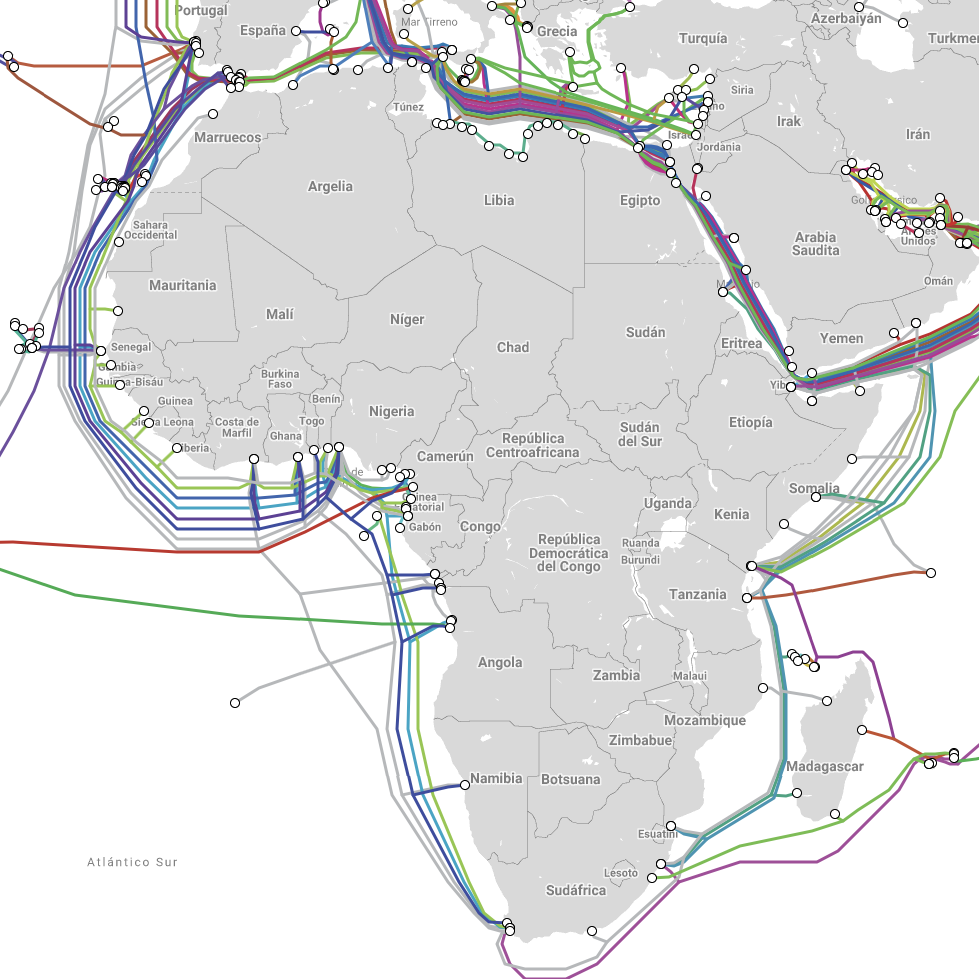Submarine Cable Networks In Africa
Image source: www.submarinecablemap.com
Africa remains one of the most important global digital transformation growth markets. Submarine cable networks connecting various African countries are a good yardstick to measure economic progress in specific countries. As of 2018, nearly every African country was connected to the rest of the world by at least one submarine cable, and connectivity through terrestrial cables within the continent was well advanced. As new subsea cables continue to be rolled out across Africa, there will be a significant reduction in international bandwidth costs, increased bandwidth consumption, and demand for emerging technologies. Once these results become noticeable, the hope exists that the digital divide between Africa and the rest of the world will narrow. There will be a boost in economic and social development in African countries.
Why are submarine cables needed?
Subsea fiber optic cables connect Africa to the rest of the world and serve as a catalyst for future communications technology development. At least 99% of global data currently travels through submarine cables, making these cables crucial in integrating the continent with the rest of the world and allowing it to be a competitor in the global market. The existing subsea infrastructure is aging and won’t be able to support infinite future demand. High-capacity subsea cable systems need to be established to complement the existing networks to allow for automated traffic rerouting if there are cuts or outages to address these risks.
East African submarine cables
Eastern Africa and Western Africa each have 24 subsea cables, with 12 on each side. Eastern Africa stretches from Djibouti to South Africa. It includes six continental countries and four nearby islands: Mauritius, Madagascar, Seychelles, and Comoros.
Kenya is the connectivity hub for Eastern Africa. It has four operational subsea cables and another four in planning or construction. As the central point, Kenya also connects to landlocked countries like Rwanda, Uganda, and Burundi.
For years, Seacom and EASSy have been the main East African subsea cables. They uniquely operate with licensed entities in each served country. Both service providers have developed terrestrial networks and built alliances with landlocked nations.
The TEAMS subsea cable links Eastern Africa to the Middle East. It is a joint venture involving the Kenyan government, telco operators, and UAE-based Etisalat. Another recent cable, 2Africa, involves eight global companies. This cable aims to connect Africa and the Middle East and will link to other subsea cables through East Africa.
2Africa will expand connectivity to Asia. The cable’s expected “live” date is 2023 or 2024. Additionally, the technology will offer cost-effective capacity.
The SAT3 cable, spanning 21 countries from Morocco to South Africa, launched in 2002. In 2012, WACS and ACE followed. ACE, covering 22 countries, connected several northwestern African nations to their first subsea cable. This reduced reliance on satellite connectivity and enabled affordable broadband access.
Atlantis-2, launched in 2000, was the first subsea cable linking Senegal and Brazil across the South Atlantic. Since then, various projects have aimed to improve connectivity and offer alternate routes between Africa and the United State
North African submarine cable networks
Egypt and Djibouti sit in the Asia-Europe subsea corridor and connect or terminate 26 submarine cables near France, Spain, Italy, and Saudi Arabia. The North African region, including Djibouti, Sudan, Egypt, Libya, Tunisia, Algeria, and Morocco, leverages its proximity to these countries. Each African country connects through several point-to-point short-distance cables in addition to existing subsea cables.
Continued submarine cable network development will ensure that Africa has a robust connectivity infrastructure that offers multiple options at competitive prices. As connectivity prices start to decrease, Africa’s digital economy will be accelerated, and the digital divide will be narrowed.
Should you require a reliable internet service provider specializing in submarine cable telecommunications, get in touch with our experts at AFR-IX Telecom today.
